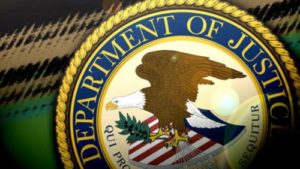COLVIN + HALLETT BLOG
DOJ Issues New Charging & Sentencing Guidance
 On May 10, 2017, Attorney General Sessions issued a Memorandum titled Department Charging and Sentencing Policy. Prosecutors were instructed to “charge and pursue the most serious, readily provable offense” and “disclose to the sentencing court all facts that impact the sentencing guidelines or mandatory minimum sentences.”
On May 10, 2017, Attorney General Sessions issued a Memorandum titled Department Charging and Sentencing Policy. Prosecutors were instructed to “charge and pursue the most serious, readily provable offense” and “disclose to the sentencing court all facts that impact the sentencing guidelines or mandatory minimum sentences.”
The Memorandum does not contain any tax-specific guidance but could potentially impact the charging of tax crimes. For instance, under some circumstances money laundering or mail/wire fraud charges may have higher sentences and longer statutory maximums under the Guidelines as contrasted with tax crimes under title 26. (For example, under U.S.S.G. § 2S1.1, the guideline offense level for a money laundering crime involving tax proceeds would be the offense level of the underlying tax crime, plus 1 or 2 points – depending on whether the crime is charged under 18 U.S.C. § 1957 or § 1956. U.S.S.G. § 2S1.1(b)(2).) Under the new Memorandum, prosecutors could be required to charge these other non-tax charges.
Prior to the Memorandum, under Tax Division Directive No. 128, which came into effect in 2004, wire/mail fraud and money laundering charges – which can ratchet up the exposure of defendants – were approved in tax-related cases “involving schemes to defraud the government or other persons if there was a large fraud loss or a substantial pattern of conduct and there is a significant benefit to bringing the charges instead of or in addition to Title 26 violations.” Directive 128 goes on to state the following:
Fraud charges should be considered if there is a significant benefit at the charging stage (e.g., supporting forfeiture of the proceeds of a fraud scheme; allowing the government to describe the entire scheme in the indictment); at trial (e.g., ensuring that the court will admit all relevant evidence of the scheme; permitting flexibility in choosing witnesses); or at sentencing (e.g., ensuring that the court can order full restitution). See id. § 9-27.320(B)(3) (“If the evidence is available, it is proper to consider the tactical advantages of bringing certain charges.”).
Directive 128 gave prosecutors more flexibility to charge these non-tax crimes than the prior rule (Tax Division Directive 99), but the new Memorandum now seems to always authorize and perhaps even require prosecutors to charge these other non-tax charges if they are readily provable. It is possible more non-tax charges will be seen in forthcoming indictments.
To the extent that prosecutors in tax cases charge these non-tax offenses that carry greater potential sentences, it becomes even more important for defense counsel to negotiate with prosecutors to avoid factors that would lead to harsher sentencing from the outset of a case (e.g. tax loss, relevant conduct). It can also be anticipated that, if prosecutors are charging crimes that carry the weightiest sentences under the Guidelines, more guilty pleas and potentially longer sentences can be anticipated.
NEWS + ALERTS
Enter your email address to receive updates and alerts on important developments in tax law.